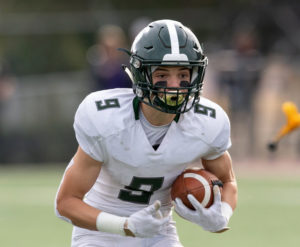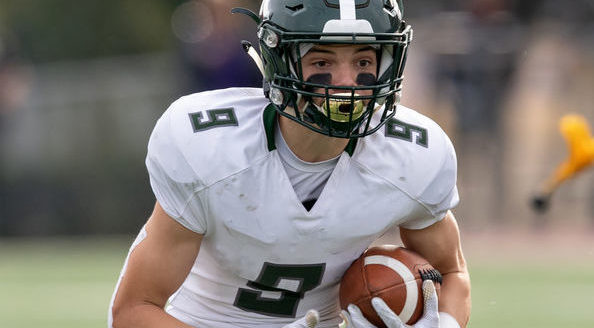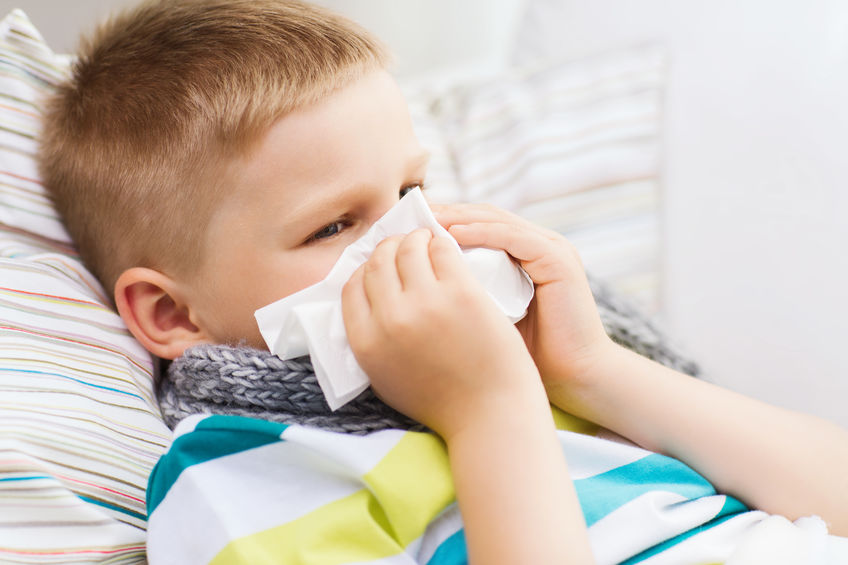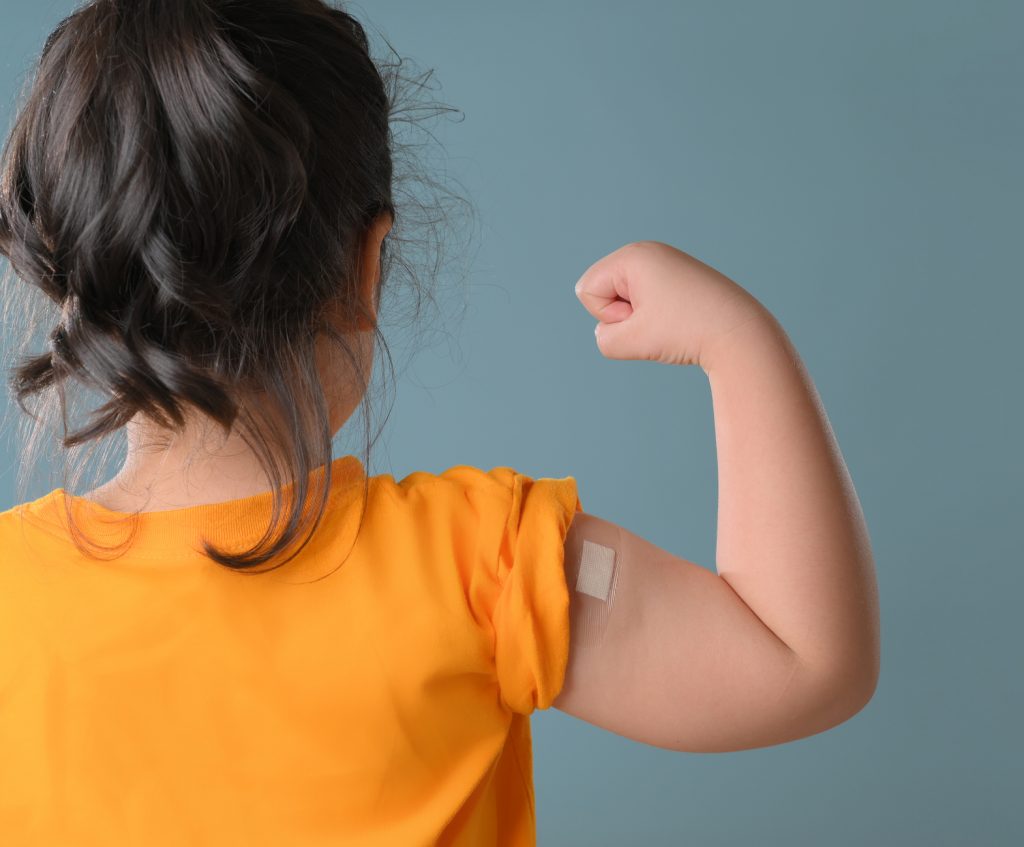 Whether it’s playing on the varsity football team or just starting out with tee-ball, sports are often a major part of childhood.
Whether it’s playing on the varsity football team or just starting out with tee-ball, sports are often a major part of childhood.
If your child had COVID-19 and took a break from their sport, they may be anxious to start playing again. But sending them back onto the field too quickly can put their health at risk.
Here are 7 things you need to know about COVID-19 and returning to play:
Listen to the Just Kids Podcast episode, “COVID-19 And Sports Medicine Q&A.”
1. COVID-19 may have impacted your child’s heart.
Although rare, COVID-19 can have lasting effects on a child’s heart, including a condition called “myocarditis” (inflammation, or swelling, of the heart). In athletes, myocarditis is a known cause of significant health issues including sudden death during exercise.
Also, children who had multisystem inflammatory syndrome in children (MIS-C) — a condition closely linked with COVID-19 — may have developed problems with their heart, such as arrhythmias (irregular heartbeats) or decreased ability to pump oxygen-rich blood throughout the body.
If your child’s heart was affected by COVID-19, it doesn’t necessarily mean that they can never play sports again. However, it does mean that they may have to avoid certain types of activities and take extra precautions.
Stop Physical Activity If…
Have your child stop physical activity, and contact their provider right away, if they experience these symptoms:
- Palpitations or tachycardia
- Dizziness
- Chest pain or pressure
- Fainting
- Reduced exercise tolerance or difficulty breathing
2. Your child should receive medical clearance before returning to play.
Heart problems may not cause obvious symptoms, which is why getting medical clearance is so important.
In most cases, clearance can be given by a primary care or sports medicine provider. Seeing a cardiologist may be necessary if they had moderate or severe symptoms that resulted in hospitalization or cardiac care, or if they are already being treated for a heart condition.
3. Return to play should be gradual.
Even if your child is feeling great after two days, their body still needs a little rest from cardiovascular activity.
| If your child had: | No symptoms | Mild symptoms (cold with a fever over 100.5°F OR flu-like aches for less than 48 hours) | Moderate symptoms (cold with a fever over 100.5°F OR flu-like aches for greater than 48 hours) | Severe symptoms requiring hospitalization or cardiac care |
| Then follow these recommendations: |
|
|
|
|
Once your child has been cleared to play, they should slowly ease back into it.
If your child has been away from their sport for a while, they may have lost some of their endurance. A long run or pitching a full game that once came easily can suddenly be tougher to get through. Pushing through without reconditioning their body can increase the risk of injury or aggravate improving COVID related cardiac or pulmonary issues.
Have your child start physical activity slowly, and only increase intensity, frequency or duration gradually.
Your child’s pediatrician, primary care provider or sports medicine provider can help you develop a phased plan for your child based on medical history, their specific sport and their experience with COVID-19.
4. If your child is a “long-hauler,” sports may need to wait a little longer.
For many kids, COVID-19 symptoms clear up within one to two weeks. But for some, the symptoms can linger.
If your child has long-lasting symptoms, such as frequent chest pain or fatigue, they may be considered a “long-hauler” — someone who has COVID-19 symptoms that persist for months after being infected.
Having ongoing symptoms isn’t just difficult physically. It’s emotionally draining, especially for an athlete who is itching to go back to their sport. If your young athlete is a long-hauler, keep checking in on their mental health. They may benefit from working with a behavioral health specialist on coping with the struggles of having lasting symptoms and missing their sport.
And no matter what, do not try to push your child back into playing if they aren’t feeling up for it yet. Reaching out to your doctor for advice is best.
5. Don’t forget about COVID-19 safety and prevention.
If your child had COVID-19, they most likely have some immunity to it, but we don’t know how much or for how long it lasts. We also don’t know if they can still be carriers and pass the virus on to others.
The risk of reinfection, along with catching and passing COVID-19, can be especially high if your child plays a sport that involves close contact or shared equipment, like wrestling or basketball. So keep up with wearing masks, have your child avoid close contact with teammates whenever possible, and make sure that they are only using clean, disinfected equipment.
6. Don’t forget about general sports safety, too.
It’s easy to get distracted by COVID-19, but it’s essential to remember the basics of sports safety, including:
- Wearing any protective gear needed for a sport, like helmets, knee pads or wrist guards
- Using equipment and wearing clothing and shoes that fit well and are in good condition (e.g., no worn-out padding or missing buckles)
- Staying hydrated
- Warming up and stretching
7. Remember your old pal, the pre-participation exam.
With spring and summer sports around the corner, we remind all young athletes to undergo a pre-participation exam — and we also highly recommend having it performed by your child’s pediatrician or primary care provider rather than at school, an urgent care, or pharmacy clinic.
At Children’s Physicians, the pre-participation exam is an opportunity for a full wellness visit. We check in on your child’s general development, see that their vaccines are up to date, and screen for any medical or mental health concerns.
We’ve Got Your Back
The decision to send your child back to play can be a difficult one, but you don’t need to make it alone. Our team is here, and we’re committed to helping you find the safest way for your child to get back to the sport they love.
Is your child ready to return to play? Contact their pediatrician or primary care provider to schedule an appointment.
For Providers
For information on clearing your patient to return to play, visit our “For Providers” page.



